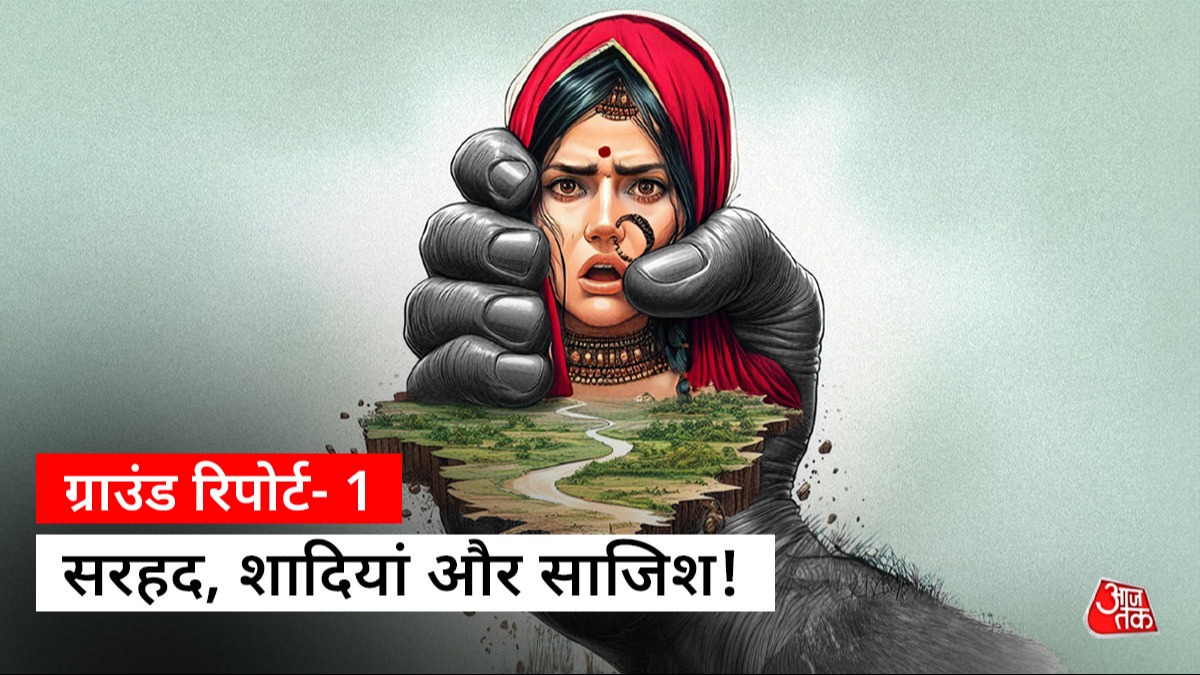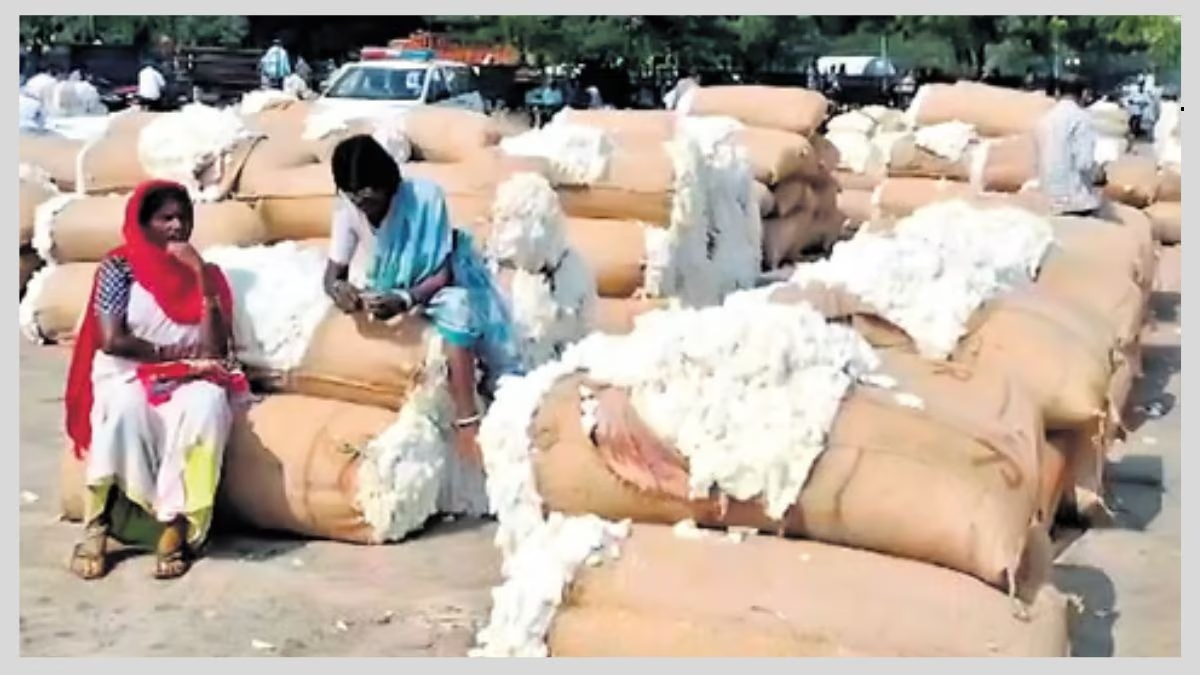The gangrape of a Spanish tourist thrust the district of Dumka, Jharkhand, into the global spotlight. This tribal-dominated area is now on everyone's lips. Yet, Dumka was never anonymous. Many districts, including Dumka, are rumored to be increasingly home to Bangladeshi Muslims- not just arriving, but establishing family homes. Some tribal leaders express fear that soon their daughters and lands will vanish.
How much truth is there to these fears? Is it truly so simple to traverse from across the border and settle down? Are these alleged intrusions merely for basic needs like food, clothing, and shelter, or has an entire system been established that could dangerously alter the area's demographics? Our investigation led us through three districts in Santhal Pargana, delving into these questions.
Sahibganj's Gonda Hill.
In December 2022, a piece of a human leg was spotted near an Anganwadi, being gnawed at by dogs. Nearby, a house was found containing chunks of flesh sealed in sacks. The remains belonged to Rubika Pahariya, a tribal woman who had married Dildar Ansari about a month prior.
Dildar had previously been married, keeping his first wife in the same home- a fact unknown to Rubika initially. Disputes began and within a month, Rubika was gruesomely murdered. The investigation also revealed that after her death, her skin was removed to prevent identification.
With the husband and other culprits now behind bars, the dismembered young woman has fueled the theory most vociferously peddled in right-wing politics - the theory of Love Jihad.
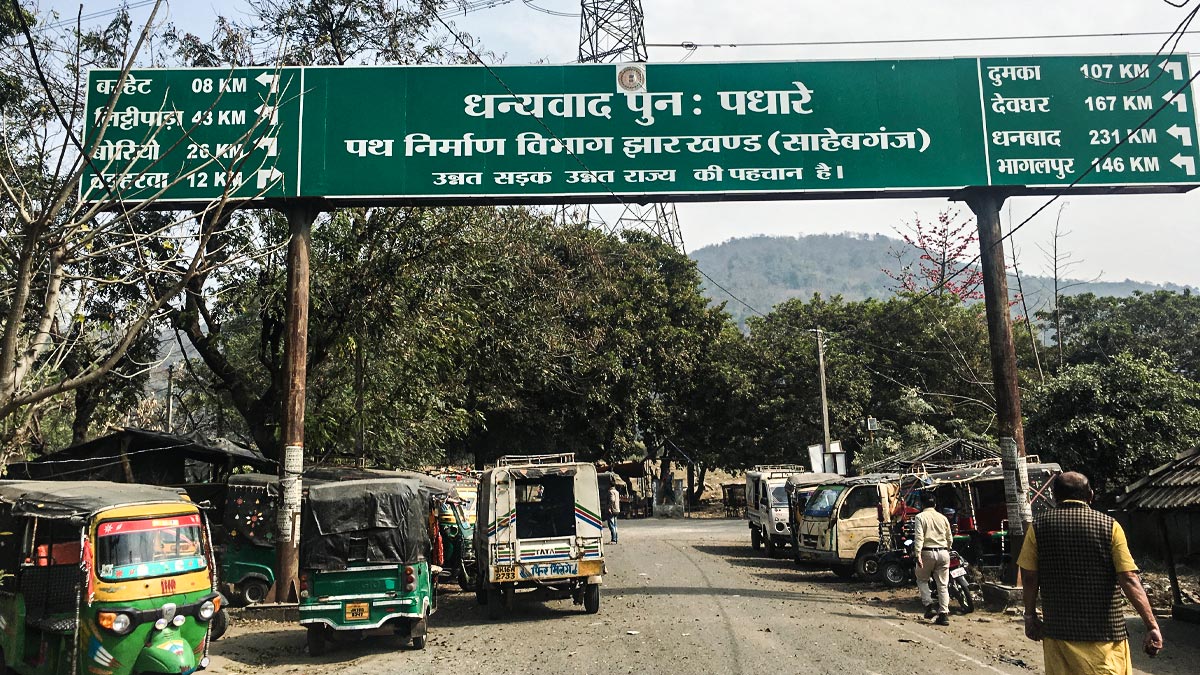
Source: aajtak
In Dumka, Sahibganj, and Pakur, we met numerous tribal leaders and locals—all reciting the same refrain.
There are no documents or data to support their claims. They cite incidents suggesting a pattern for added weight to their arguments.
A Muslim man falls in love with a tribal girl. Marriage occurs, with concealed or genuine identities, followed by conversion – or not! South Santhal Pargana contrasts the common narrative of Love Jihad, with the girl retaining her tribal identity post-marriage. This retained identity benefits the husband, who gains influence ranging from land acquisition to politics.
How exactly? For that, we headed to Pakur Court. A lawyer there was going to assist us. Upon meeting, he revealed patterns seen repeatedly in the region, but with one condition: mobile phones had to be turned off. Our conversation unfolded in a quiet corner of the court.
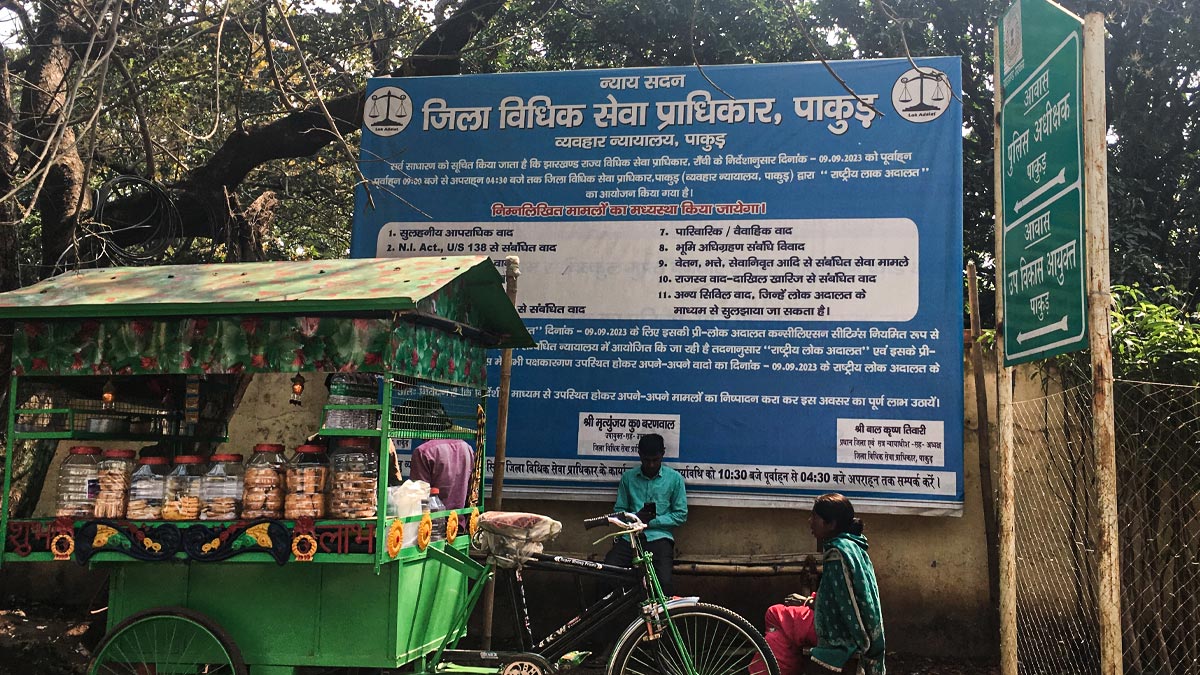
Source: aajtak
The need for such caution?
You'll record and leave. My family is here. No one would know if someone suddenly disappeared.
Despite assurances, the young lawyer was cautious, his demeanor guarded.
We'll go right to the issue without further ado.
The narrative here speaks of Bangladeshi infiltrators strategically marrying tribal girls. Are you aware of this?
There's a going rate here. Poor folks come from Bangladesh. They get a target, a young tribal girl, and a fixed sum for luring her. This money is paid in installles; some upfront to allow for nice clothes and outings to woo the girl. Most tribal families targeted are poor. They're approached, befriended, then captivated.
Subsequent steps involve the young man acquiring land in the girl's name post-marriage. South Santhal Pargana's SPT Act facilitates this.
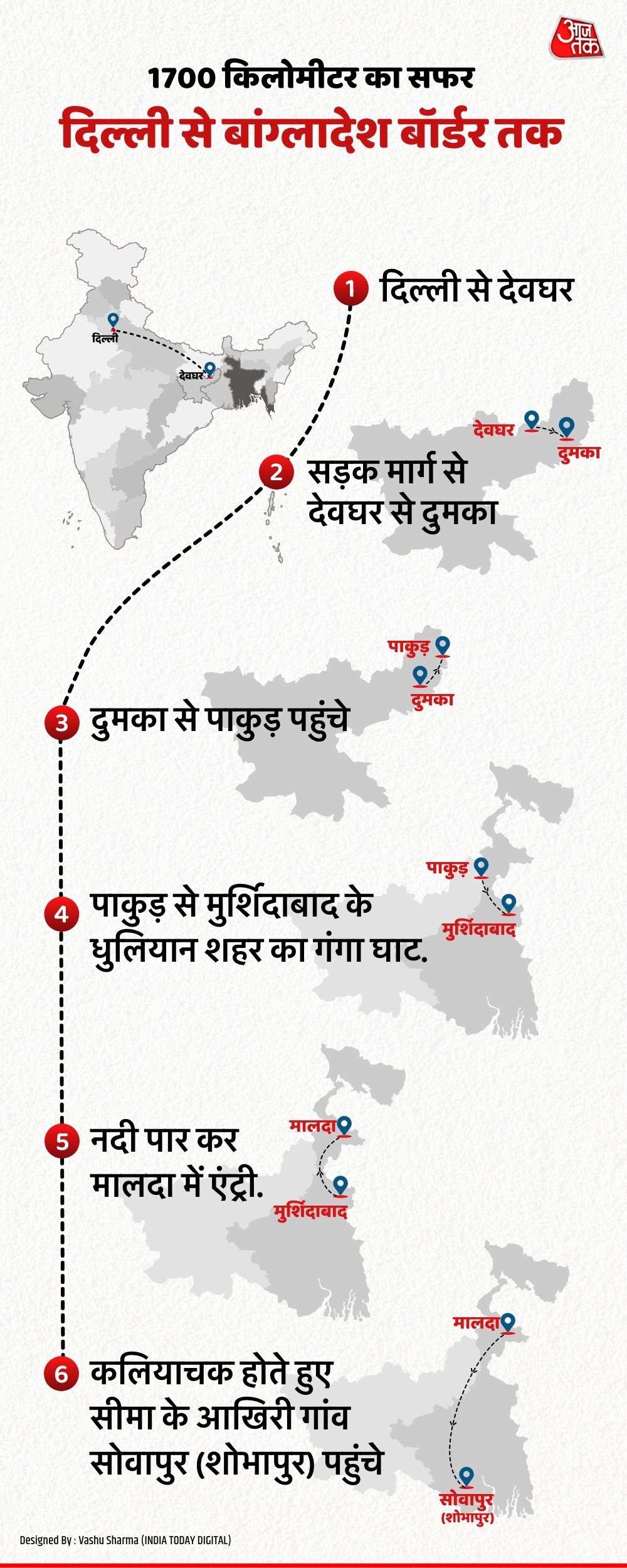
Source: aajtak
The final step is even more hazardous.
In these tribal-dominated regions, the headman positions are reserved for tribals, often for women. Non-tribals are barred from contesting. Since tribals don't have the resources or interest in politics, outsiders exploit this by having their wives run for election. Upon victory, these outsiders retain all the powers while their wives are reduced to mere signatories.
There's no proof or data for what you are saying?
There's nothing written. We tried collecting data locally once but received threats. The work was stopped. You investigate it yourself. Observe the local elections; there's a notable spike in marriages between non-tribals and tribal girls. They win due to support from local Muslims. Then, politics no longer matters to them. The husband takes over, deciding everything.
This narrative led us to Jabardahah village in Pakur, home to the former representative Sunita Marandi, whose husband is Azad Ansari.
At the village's highest point stood her sprawling semi-built house. Sunita was seen carrying a pile of wet laundry. She pointed out her husband was not home and suggested coming later for business.
When we spoke, she stopped. Entering the house, conversations about her role as village head began.
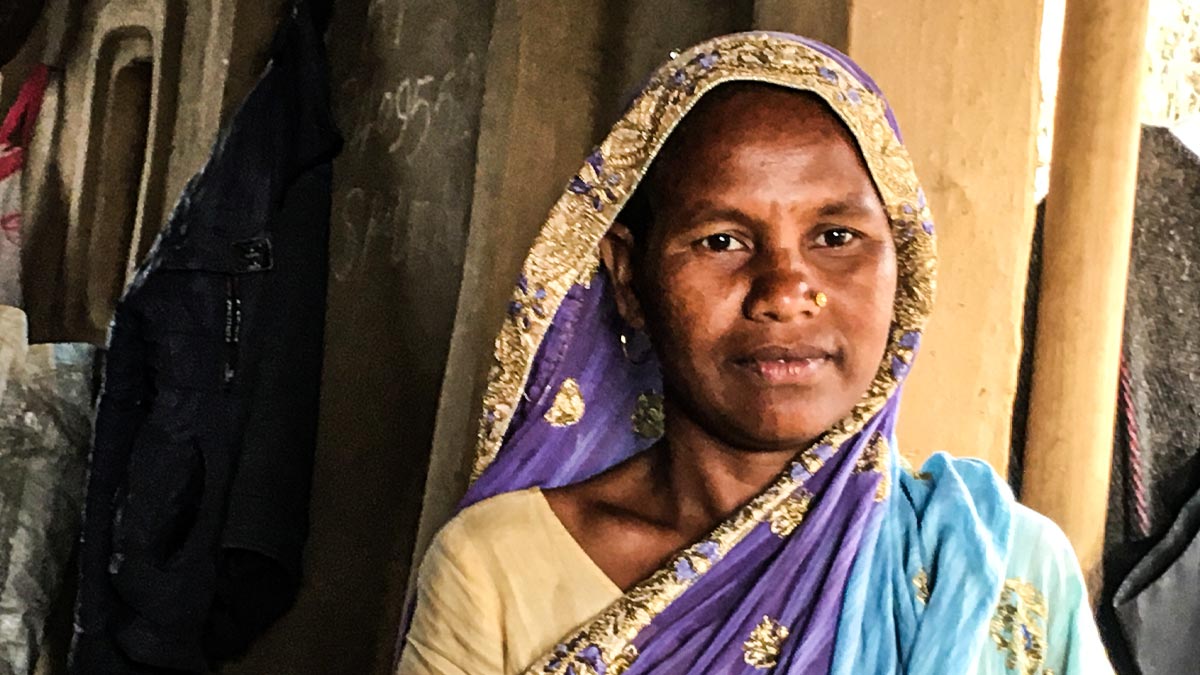
Source: aajtak
You were the village head?
Yes, but I lost this year's election.
How did you lose? You both had done noteworthy work. I mention casually.
Yes, we had. We built roads and lavatories. He (husband) hustled a lot, oversaw everything. He worked extensively.
And, what did you do?
I managed the household. We've got three children; caring for them, cooking, all of it.
Your children's names?
Farzana, Farhana, and Yusuf.
Your name?
Sunita Marandi... failing to catch the veiled question.
Can the children write?
Yes, they attend school and learn the Quran.
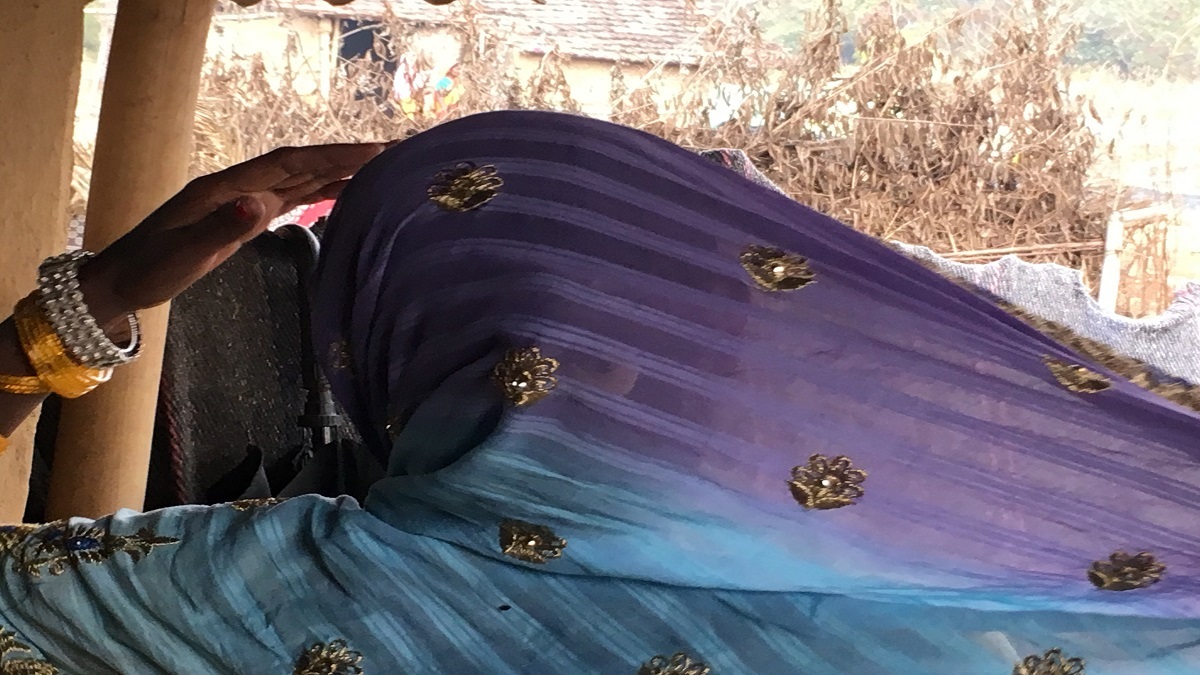
Source: aajtak
Your husband's second marriage?
Yes, the first wife was ill. That's why he married me. I'm the second one. She lives separately.
As the former head, Sunita exhibited an uncharacteristic trait for a tribal woman: she covered her hair with a pallu, tucking it tightly behind her ears. Occasionally, her hand would instinctively check her covered head.
Your education level?
Matriculation.
Could you write your name and address here?
As I completed my question, a young boy appeared, stopping Sunita and glaring at me - You know she's only matriculated. If you have questions, come back when her husband's here.
The boy's face carried a sternness belying his 16-17 years. Sunita smiled - He's my eldest, Yusuf.
Before anyone could interject, Yusuf ushered us out.
Following this thread, we arrived at Jabardahah village, home to Jharna Marandi, headwoman, and her husband Asraf Sheikh, known for managing all village affairs.
A common trend in the area:Non-tribals are marrying tribal girls, securing positions reserved for tribal women, and subsequently controlling village matters. These marriages and the control they wield are business-like, with returns on investment involving land, politics, and, in some cases, violence.
In the upcoming installment, we'll explore alleged cases of Love Jihad in Jharkhand's tribal districts. These stories don't have fixed conclusions. A girl's faith may change, her life may end, or she may become a pawn. Some see these as failed love stories, others as something more sinister...
